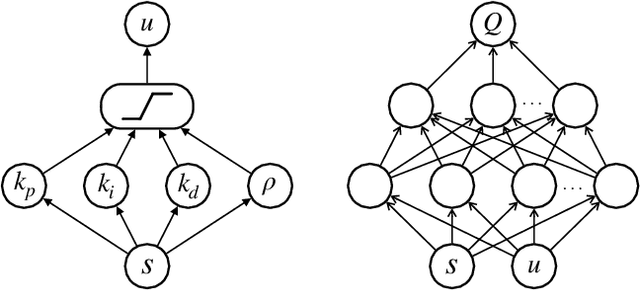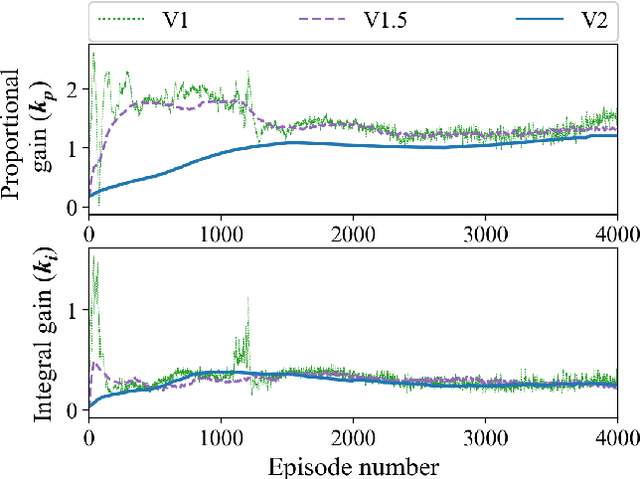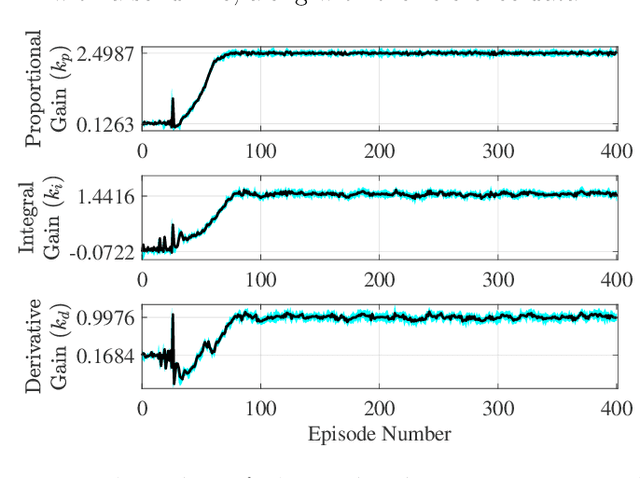Gregory E. Stewart
Optimal PID and Antiwindup Control Design as a Reinforcement Learning Problem
May 10, 2020



Abstract:Deep reinforcement learning (DRL) has seen several successful applications to process control. Common methods rely on a deep neural network structure to model the controller or process. With increasingly complicated control structures, the closed-loop stability of such methods becomes less clear. In this work, we focus on the interpretability of DRL control methods. In particular, we view linear fixed-structure controllers as shallow neural networks embedded in the actor-critic framework. PID controllers guide our development due to their simplicity and acceptance in industrial practice. We then consider input saturation, leading to a simple nonlinear control structure. In order to effectively operate within the actuator limits we then incorporate a tuning parameter for anti-windup compensation. Finally, the simplicity of the controller allows for straightforward initialization. This makes our method inherently stabilizing, both during and after training, and amenable to known operational PID gains.
Reinforcement Learning based Design of Linear Fixed Structure Controllers
May 10, 2020



Abstract:Reinforcement learning has been successfully applied to the problem of tuning PID controllers in several applications. The existing methods often utilize function approximation, such as neural networks, to update the controller parameters at each time-step of the underlying process. In this work, we present a simple finite-difference approach, based on random search, to tuning linear fixed-structure controllers. For clarity and simplicity, we focus on PID controllers. Our algorithm operates on the entire closed-loop step response of the system and iteratively improves the PID gains towards a desired closed-loop response. This allows for embedding stability requirements into the reward function without any modeling procedures.
 Add to Chrome
Add to Chrome Add to Firefox
Add to Firefox Add to Edge
Add to Edge